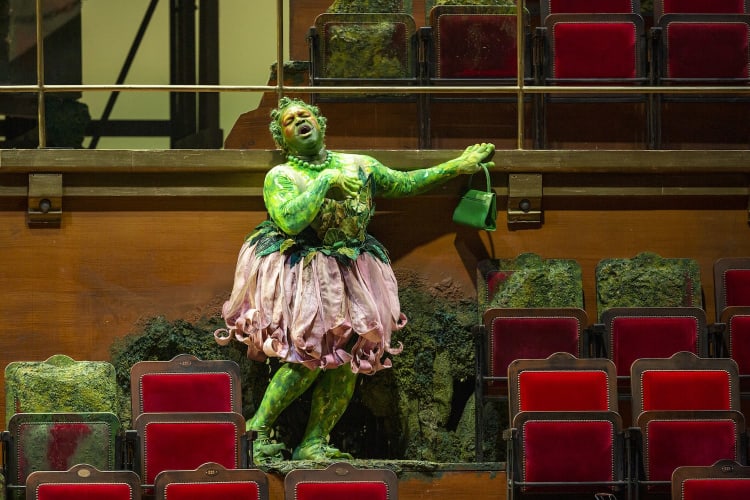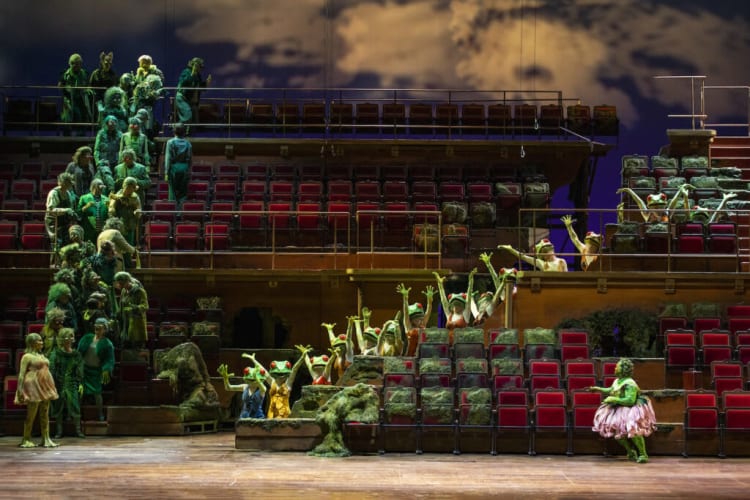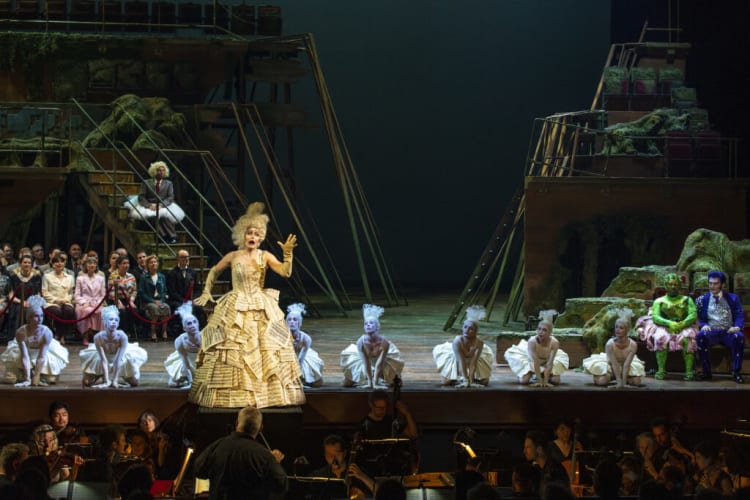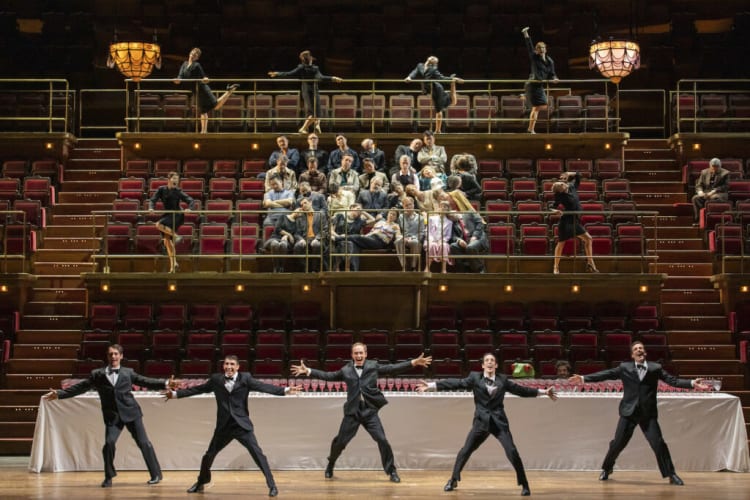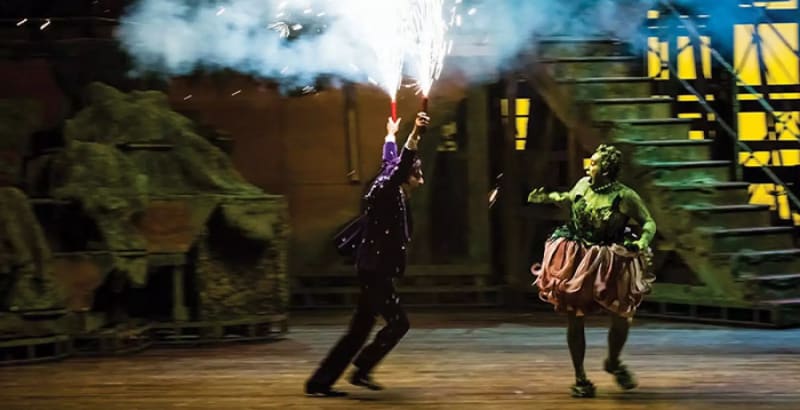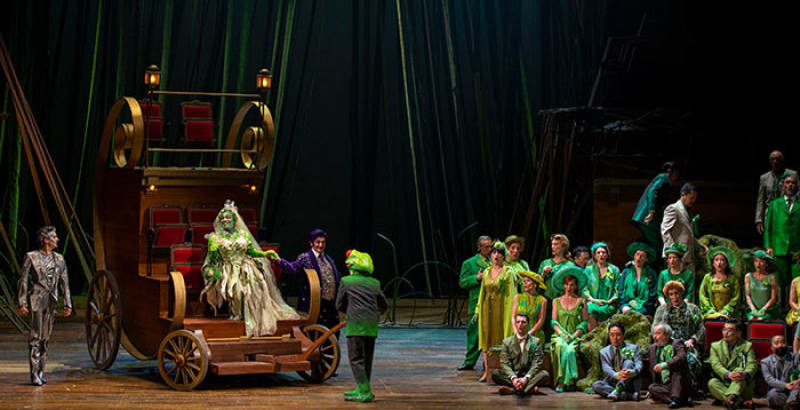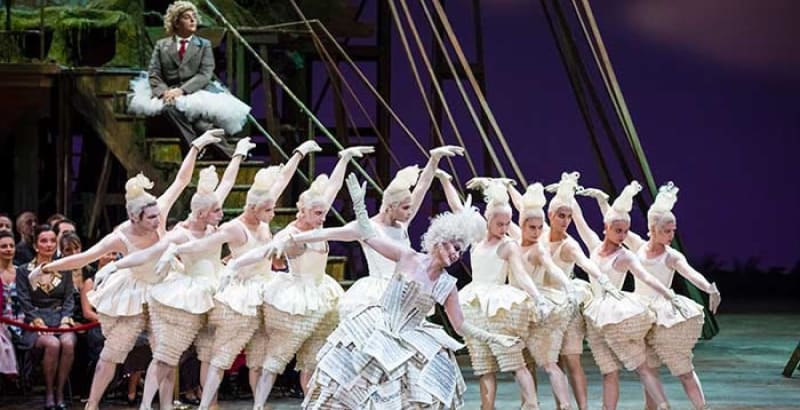What a joy to discover this funny, touching, bubbling production, a 2022 revival of the Paris National Opera original that in 1999 helped establish Laurent Pelly as one of the great opera directors.
Platée is a water nymph who foolishly believes herself to be so beautiful that even the gods would instantly fall for her. Jupiter, whose wife Juno suspects him of infidelity, pretends to love Platée, so that when the latter is unmasked, and ridiculed, Juno’s jealousy will be shown as unfounded.
While the work might be regarded as a satire upon human vanity—and the idleness of the gods—it can be a cruel piece too, as I felt about a recent Vienna production.
It was perhaps the all too realistic dressing of Platée as a woman there that left me with such an uncomfortable feeling. Pelly, however, presents her as Queen of the Frogs, and even in her humiliation lightens the pathos by having an adoring froggy suitor pursue her with a bunch of flowers.
Whether or not one much enjoys early opera—and there is a melodious but fairly slow, 25-minute prologue to get through before the proper action—there is a multitude of delights to savour in Pelly’s costume designs, Chantal Thomas’s set and choreography by Laura Scozzi in what Rameau called in 1745 a ballet bouffon as well as a comedie lyrique.
The set is an imitation of the auditorium of the Paris Opera's Palais Garnier itself, into which files the chorus, dressed as ordinary patrons and guided by usherettes, implying that the audience might draw comparisons with themselves.
Thereafter, it is gradually taken over by pond-like green gunk and a legion of bulbous-eyed frogs, some jumping, dancing or, yes, playing leapfrog. There are not only amphibian acrobatics to follow—chickens flap around, three men in bras and pants engage in a pas de trois (not as tacky as it sounds) and couples engage in a witty battle of the sexes, including a rebellious dog / man on a leash. I cannot remember any dance sequences in opera making me chuckle so much.
As Platée, American tenor Lawrence Brownlee finds exactly the right tone between absurd affectation and lonely vulnerability and modulates his expression between sweet addresses to his fellow nymphs to a rasping, froggy "Qua, qua."
Act two belongs to Julie Fuchs as Folly. "Admire my joyful art," she sings, justly so. The French soprano has masterful control and a brilliant timbre in her long solo. She is a great comedic actress too, clearly relishing the fun going on around her.
Jean Teitgen’s rock-star Jupiter makes a memorable descent from heaven on a chandelier, with Reinoud Van Mechelen sharply-dressed in a silvery suit as Mercury.
Rameau’s sprightly score, with hints of animal noises and realistic echoes of a storm, is played with clearly felt affection by Les Musiciens du Louvre conducted by Marc Minkowski.
